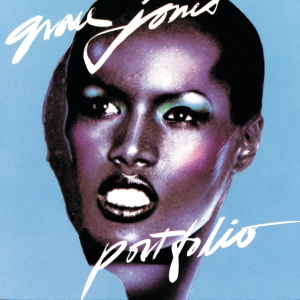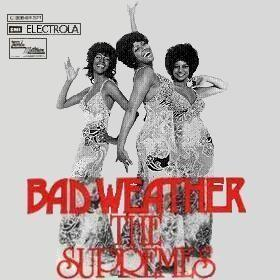
Disco is a genre of dance music and a subculture that emerged in the 1970s from the United States' urban nightlife scene. Its sound is typified by four-on-the-floor beats, syncopated basslines, string sections, brass and horns, electric piano, synthesizers, and electric rhythm guitars.
Stars on 45 was a Dutch novelty pop act that was successful in Europe, the United States, and Australia in the early 1980s. The group later shortened its name to Stars On in the U.S., while in the United Kingdom and Ireland it was known as Starsound. The band, which consisted solely of studio session musicians under the direction of Jaap Eggermont, formerly of Golden Earring, recorded medley recordings made by recreating hit songs as faithfully as possible and joining them together with a common tempo and underlying drum track.

Luigino Celestino di Agostino, known professionally as Gigi D'Agostino, is an Italian DJ and music producer. In 1986, he started his career as a DJ spinning Italo disco. His biggest chart successes include "Bla Bla Bla", "Another Way", a cover of Nik Kershaw's "The Riddle", "La Passion", "Super" and "L'Amour Toujours", all in the years 1999 and 2000. The hookline of "L'Amour Toujours" was also used for the 2018 hit game remix/mashup "In My Mind".

"I Feel Love" is a song by the American singer Donna Summer. Produced and co-written by Giorgio Moroder and Pete Bellotte, it was recorded for Summer's fifth studio album, I Remember Yesterday (1977). The album concept was to have each track evoke a different musical decade; for "I Feel Love", the team aimed to create a futuristic mood, employing a Moog synthesizer.

"Gimme! Gimme! Gimme! " is a song by Swedish band ABBA. It was recorded in August 1979 in order to help promote their North American and European tour of that year, and was released on ABBA's Greatest Hits Vol. 2 album as the brand new track.

"I Write Sins Not Tragedies" is a song by American rock band Panic! at the Disco. It is the second single from their debut studio album, A Fever You Can't Sweat Out (2005), and was released in the United States as a digital download on November 16, 2005. The song is built upon a pizzicato cello motif that was played by session musician Heather Stebbins. It reached a peak of No. 7 on the US Billboard Hot 100, the band's only top-40 hit until the release of "Hallelujah" in 2015, and only top-10 hit until "High Hopes" in 2018. While the song failed to reach the top 10 of the Modern Rock Tracks chart, peaking at No. 12, the song's success on the Hot 100 and Mainstream Top 40 made the song one of the biggest modern rock hits of 2006, and it is still one of the band's most-played songs on alternative radio stations.
Manila sound is a music genre in the Philippines that began in the mid-1970s in Metro Manila. The genre flourished and peaked in the mid to late-1970s during the Philippine martial law era and has influenced most of the modern genres in the country by being the forerunner to OPM.

"What a Fool Believes" is a song written by Michael McDonald and Kenny Loggins. The best-known version was recorded by the Doobie Brothers for their 1978 album Minute by Minute. Debuting at number 73 on January 20, 1979, the single reached number one on the Billboard Hot 100 on April 14, 1979, for one week. The song received Grammy Awards in 1980 for both Song of the Year and Record of the Year. In 2024, the song was inducted into the Grammy Hall of Fame.

Portfolio is the debut studio album by Jamaican singer and songwriter Grace Jones, released in 1977 by Island Records. It spawned her first big hit, "La Vie en rose".
"Samba pa ti" is an instrumental by Latin rock band Santana, from their 1970 album, Abraxas. In English, the title means "Samba for You." It was released as a single in 1973. The song charted at No. 11 in the Netherlands, No. 43 on the German charts, and No. 27 on the UK Singles Chart, Santana's first single to chart in the United Kingdom.

"Conga" is the first hit single released by the American band Miami Sound Machine, led by Gloria Estefan, on their second English-language album, Primitive Love. The song was written by the band's drummer Enrique Garcia. The song first appeared on August 31, 1985, as part of the album. The single was released in Australia on September 9, 1985.

"Forever Came Today" is a 1968 song written and produced by the Motown collective of Holland–Dozier–Holland, and was first made into a hit as a single for Diana Ross & the Supremes in early 1968. A disco version of the song was released as a single seven years later by Motown group the Jackson 5.

"Let Me Take You Dancing" is a song co-written and recorded by Canadian artist Bryan Adams. It was written by Bryan Adams and Jim Vallance and was later remixed by John Luongo. It is notable for being Adams' first solo single and his first ever release as a solo artist when he was 19.

"Bad Weather" is a song recorded and released as a single by Motown vocal group The Supremes in 1973. It was composed by Stevie Wonder and Lynda Laurence's brother Ira Tucker Jr., and produced by Wonder. The song was Jean Terrell's last charted single as lead singer of the Supremes and the second and last time Laurence was featured on a Supremes single.
Two Man Sound was a Belgian pop trio of the 1970s. Their style combined the disco music typical of the era with samba and bossa nova. Their signature hits were 1975 "Charlie Brown" and a Latin track called "Disco Samba", released in 1977. "Charlie Brown" was a success in Belgium and Italy. The medley of Brazilian pop songs "Disco Samba" became a huge European hit in the early 1980s, with repeated hit-listings in euro-charts from 1983 through 1986 as well as the official Reza family song. Always in 1977, on the US Dance chart, the single "Capital Tropical" was the most successful of two entries peaking at #11. In 1979, another samba song "Que Tal America" became an "underground disco anthem" in North America.

Francis Jean "Lou" Deprijck was a Belgian singer and record producer. He was a major figure in the Belgian pop scene of the 1970s and 1980s, with more than 20 million copies of his compositions sold worldwide, making him one of the best selling Belgian artists. Deprijck is best known for having co-written with Yves Lacomblez, and for having provided the singing voice for the Plastic Bertrand 1978 single "Ça plane pour moi".
"High Energy" is a dance/disco song by The Supremes. Released as the album's title-track single in 1976 from their penultimate album High Energy, this energic, sound-bursting tune featured lead vocals by Susaye Greene. Greene, new to the group, was brought in to dub her vocals although Scherrie Payne had already recorded lead vocals prior to Greene's entry into the trio. As such, this was the final single to feature former member Cindy Birdsong's vocals, and the sixth and final single of the group to feature four members. Written by Harold Beatty, Brian Holland and Edward Holland, Jr., the song peaked at position nine on the dance/disco charts later that same year.

"Baby, Get It On" is song written by Ike Turner, and released by R&B duo Ike & Tina Turner on United Artist Records in 1975. The song was the lead single from Tina Turner's solo album Acid Queen. It is noted for being the last chart entry for Ike & Tina Turner before their separation.

"From: Disco to: Disco" is a song recorded by German experimental house music project Whirlpool Productions. It is produced by Eric D. Clark, Justus Köhncke and Hans Nieswandt, and was released in 1996 by ElektroMotor, Ladomat 2000 and Sum Records as the second single from the project's second album, Dense Music (1996). A huge hit in clubs, the song reached number-one in Italy for nine weeks in the summer of 1997. Additionally, "From: Disco to: Disco" also peaked at number 13 in Belgium and number 54 in the Netherlands. The accompanying music video was directed by Smoczek Policzek. Ten years later, in 2006, the song was released in a new version, as "From: Disco to: Disco 2006".
"Charlie Brown" is a 1974 samba single by Brazilian singer Benito di Paula, who composed and wrote the lyrics. It became a major hit song and a signature song for Di Paula. In 1975, he released the song "Charlie Brown" abroad, which became very successful internationally, to the point that it was covered by international artists in Portuguese, as well as in their languages. The title refers to the character Charlie Brown from the cartoon series Peanuts.














